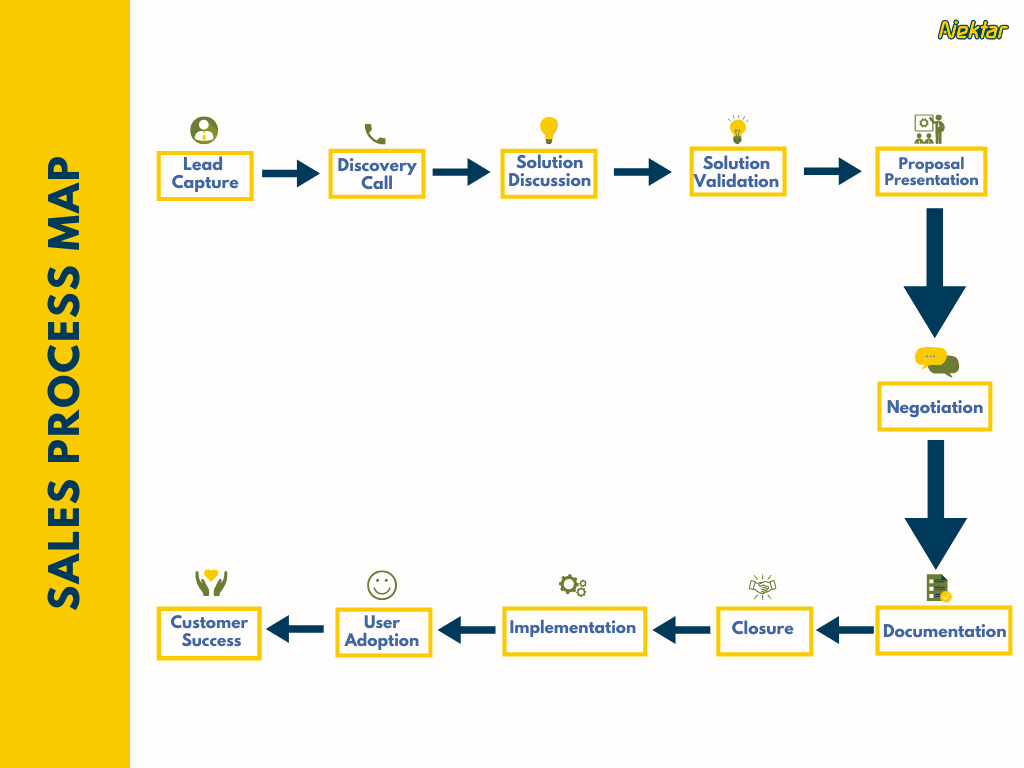Your playbook should be tailored according to the kind of deals that you are trying to close. For example, if you are going upstream from an SMB to an Enterprise model, the playbook has to change accordingly. The same strategies that helped you close deals for SMBs will not work for an enterprise model.
It’s important to evolve your playbook as your company, product and the market goes through different stages. This is the way to keep up with the competitive landscape and be ready to face turbulent times with a guide.
The way to do this is to have your playbooks be centrally managed by your enablement function, who can keep updating it as the company graduates from one stage to another.
4. Lack of peer to peer collaboration
Your sales reps are on the field, talking directly to customers, understanding the competition and dealing with the market.
The kind of intel they develop as a customer facing function should not be limited to just them. It needs to be shared with the entire organisation.
For example, the kind of documents or emails that A players are sending to prospects or the kind of questions they are asking in the calls – all of this should be documented and circulated among the new hires.
Mature reps in the organization must actively participate in building and continuously contributing to your playbooks.
This can be done by passing on the intel of your A players to a central team that can develop the playbook and make this fountain of knowledge accessible to everyone else in a systematic manner.
5. Not operationalizing your sales playbook
Even if you manage to create a playbook that caters to all the above facets, the biggest challenge is trying to get your team to adopt the playbook in their day to day interactions.
And if you force adoption in some way, how do you know if they are actually leveraging the learnings and applying them in their interactions with prospects?
There is a lack of intelligence when it comes to getting visibility around how your playbooks are getting used. What is working and what’s not goes unnoticed and becomes a big blindspot.
This is the problem we have picked up at Nektar. We realised this lack of intelligence into playbook visibility and our solution helps organisations to not just document their playbooks, but also operationalize and track their playbook deployment across teams.
To make sure your playbook is working, invest in a system that brings unprecedented visibility and playbook intelligence to your sales reps, managers and leadership.
Operationalising winning playbooks can help organizations achieve hyper-growth after achieving product-market fit.
If you start applying these tips to your playbook, it can have a massive impact on your revenues.
At Nektar, we have created a configurable playbook engine that helps drive consistent playbook best practises across your sales teams.
We would love to take you through our solution that has helped improve deal velocity by 20-25% for our clients.
For more information, shoot us an email at sales@nektar.ai

